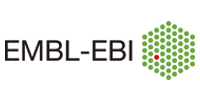 HPC boosts mathematical models’ promises of personalised medicine
HPC boosts mathematical models’ promises of personalised medicine
Date: 21 June 2022
Mathematical models of the biological processes that are deregulated in diseases show a high complexity not only because of the number of genes and pathways involved, but also because of the numerous patients or samples to include in the simulations in order to be predictive. One way to address these issues is to combine High Performance Computer (HPC)-based methods to scale up the power of the computation with mechanistic and statistical modelling approaches.
In the context of the PerMedCoE project, we have brought together computer scientists and modellers to define the needs and the methods that need to be developed to optimise the simulations of these computationally-demanding models. Two use cases were defined: the first one describes a workflow that inputs omics data of cancer patients and outputs personalised combinations of drugs per patient based on a model of intracellular signalling pathways; and the second one aims at uncovering COVID-19-related mechanisms that explain the differences in severity among patients using personalised agent-based models of different cell types.
We will conclude by briefly discussing the possible clinical applications of such types of models.
About the speaker
Dr Laurence Calzone is a research scientist at Institut Curie. France. She has published mathematical models using several formalisms including nonlinear ordinary differential equations and Boolean formalism to address specific biological questions related to cancer (cell fate decision processes in response to cell death signals, interplays between MAPK pathways, metastasis process, etc.) with the aim to provide personalised treatments. She has experience in constructing these models based on published articles and in analysing patient data using these models. She has participated in developing methods and tools to improve the simulations of the mathematical models she builds. She is an active member of modelling communities such as CoLoMoTo and SysMod.
Dr Arnau Montagud is a research scientist at the Life Sciences department of the Barcelona Supercomputing Center. During his last undergrad year Arnau participated in synthetic biology’s iGEM competition where he dove into the use of models in Biology, which pushed him to pursue a PhD in the Department of Applied Mathematics in the Technical University of Valencia. His research on Metabolic Engineering of hydrogen in cyanobacteria led him to be a visiting researcher at Uppsala University, Denmark Technical University and EMBL Heidelberg. After graduating, he decided to apply modelling techniques to Cancer using logical models, agent-based models and data deconvolution and integration.
Contact: Daniel Thomas Lopez - dthlopez@ebi.ac.uk
Keywords: DNA & RNA (dna-rna), Proteins (proteins), UniProt: The Universal Protein Resource, Fermentation, Microbial ecosystems webinar, Antimicrobial resistance, Ensembl, BLAST, Open Targets Platform, Cross domain (cross-domain), Chemical biology (chemical-biology), Drug discovery, Drug target identification, UniRule, ARBA, Automated annotation, MetaboLights: Metabolomics repository and reference database, Chemical Entities of Biological Interest, ChEBI, Metabolites, Molecular building blocks of life, Human Cell Atlas Data Coordination Platform, Single-cell transcriptomics, HCA data portal, Programmatic access, API, Python, Complex Portal, macromolecular assembly, InterPro, Boolean modelling, Europe PubMed Central, Literature (literature), Open access, Protein Data Bank in Europe - Knowledge Base, 3D structure, AlphaFold Database, DeepMind, Artificial intelligence, AI, Structure prediction, cancer, Boolean, Ensembl Genomes, European Nucleotide Archive, Data archive, Raw sequencing data, RNAcentral, Non-coding RNA, ncRNA, GPU, Data protection, Job dispatcher, Bioimage analysis resource, Accessibility, Missense variation, Biostatistics, Rfam, non-coding RNA, Infernal software, Sequence annotation, Root microbiome, Abiotic stress, land management, Plant genotype, Plant webinar series, HPC, database development, cross-linked databases, Plant database, data infrastructure, Plant breeding, Data standards, data managemnet, data sharing, Hyb-Seq method, Flowering plants, Crop improvement, Pangenomics, Pangenomes, Virtual humans, Drug-target identification, plant-microbe interactions, Spatial transcriptomics, Plant research, Drug targets, Machine learning, Mathematical modelling, plant science, Data integration, plant-environment interaction, Phenotyping, field phenotyping, Deep phenotyping, EOSC-Life, NHGRI-EBI GWAS Catalog, clinical data, genome-wide association, plants, European Variation Archive, EVA, Variant clusters, Variant data annotation, Constraint-based metabolic modelling, UniProt knowledgebase, protein variant impact, disease-associated protein variants, Bioethics, FAIR principles, ELSI, cohort data, translational research, BioModels database, Mathematical modeling, Reproducibity, Systems biology models, workflows, federated analysis, polygenic risk scores, IntAct Molecular Interaction Database, PSICQUIC, IMEx, Complex portal, Agent-based modelling, Macrophages, Tumorigenesis, Training (Training), On-demand, teaching, introduction, Building blocks, Data analysis, COSMIC, Cancer mutation, Somatic mutation, ChEMBL: Bioactive data for drug discovery, Chemical compounds, drug-like molecules, Chemogenomics, Biocurator, Programming, Data management, Green Algorithms, Open data, Environmental impact, Carbon footprint, HPC workflows, Orchestrator, Gene expression (gene-expression), Chemosensitivity assay, Experimental protocols, Drug screening, MICHA, European Genome-phenome Archive, EGA, restricted access, UniProt, Introduction, UniProtKB, Proteome, Protein Data Bank in Europe, genes, Introductory, GDPR, Data security, Expression Atlas, Pfam, protein sequence search, Domain architecture, Protein taxonomy, AI structure prediction, COVID-19, Coronavirus, COVID-19 Data Portal, Virology, Computational simulations, Signalling prior knowledge, Cancer therapy response
Organizer: European Bioinformatics Institute (EBI)
Host institutions: EMBL-EBI
Capacity: 500
Event types:
- Workshops and courses
Scientific topics: Simulation experiment, Computational biology, Personalised medicine
Activity log

 EMBL-EBI
EMBL-EBI
